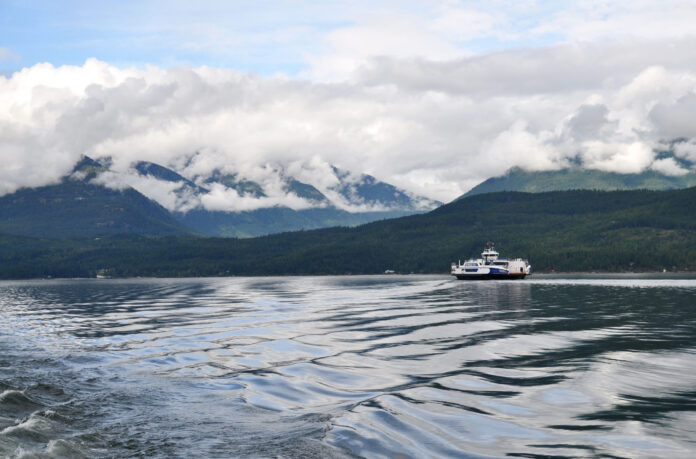While the job action on the Kootenay Lake Ferry has finally come to an end, the BC General Employees’ Union says a lasting solution is needed to prevent a repeat in the future.
On Wednesday, the BC General Employees’ Union announced it would end the job action on the Kootenay Lake Ferry — effective Friday morning — as mediated discussions between the union and employer, Western Pacific Marine, continue.
The Ministry of Transportation appointed Vince Ready as a special mediator to oversee negotiations on March 31. The union says this led to a breakthrough in negotiations, with both sides agreeing to submit outstanding matters to Ready for a binding recommendation.
“We came close in special mediation — we didn’t get all the way — but we felt there was an opportunity to go to binding recommendations, and the employer agreed with us, so we’ve gone down that path and we’re very optimistic,” explained BCGEU President Paul Finch.
“And leading into special mediation, as a show of good faith, we had the bargaining unit elect to scale down strike activity to an overtime ban. Then, on Friday, all strike activity, including the overtime ban, will cease.”
An oral hearing will be held in the coming weeks with Ready before a binding recommendation is imposed.
Finch says the job action has be halted as the matter proceeds through the binding recommendation phase. However, he adds the BCGEU remains deeply concerned about staffing levels on the ferry.
“There is a labour market here in the marine sector, and the flaws and deficiencies we’ve seen in how this operation has run have been exposed throughout the course of this strike — and we remain concerned about that.”
Finch says the union will also be asking the Ministry of Transportation to re-evaluate the feasibility of a private ferry service, in light of contract negotiation issues with both Western Pacific Marine and Arrow Lake’s ferry operator, WaterBridge Ferries.
He notes the ferry service was privatized in 2004, and since then, residents have seen a “much more expensive service that, in some cases, has lower levels of service.”
“We haven’t yet formally approached government to review these contracts, but we will be doing that. Obviously, BC is in a budget crunch — which is really on the revenue side of the equation if you track revenue versus spending. But the question needs to be: is government getting good value for these private contracts? I think the residents and our members are questioning the feasibility of private services as part of the public highway system.”
Finch says WPM members are feeling optimistic and hopeful that the binding recommendations will lead to a settlement that recognizes the needs of the community.
Meanwhile, WPM says it is “encouraged by the meaningful progress achieved in negotiations with the BCGEU over the past week.”
“We are confident that referring the remaining matters to Special Mediator Vince Ready for binding recommendations will lead to a fair, balanced, and sustainable long-term collective agreement,” WPM said in a statement.
“With strike action now concluded and regular ferry service resuming, we are focused on restoring dependable and safe operations for the communities we serve in the Kootenay Lake region. We appreciate the patience and support of our passengers and remain committed to delivering the high level of service they deserve.”






